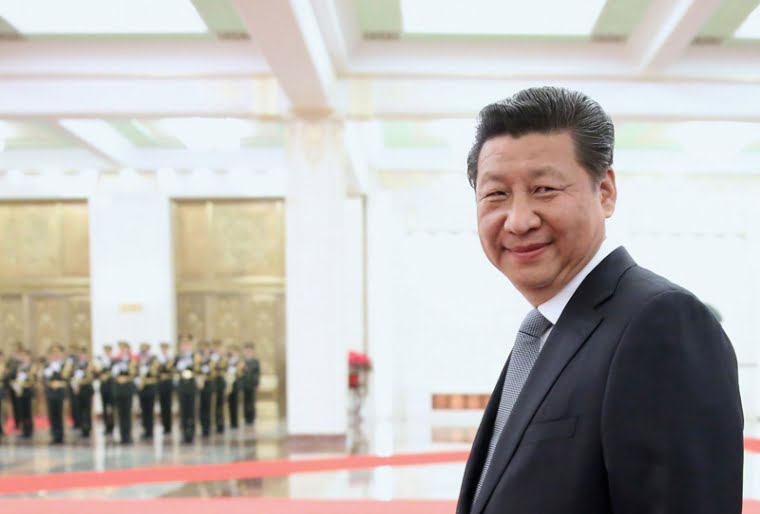The quinquennial Chinese Communist Party Congress, its 19th since winning the country’s civil war in 1949 begins this Wednesday. It will be the coronation of its leader for the past five years – Xi Jinping – as China’s new emperor, having consolidated his power over those years to a point where he is poised to be a virtual one man politburo.
Australia should pay very close attention: China is our clear No. 1 trading partner and importer, making up about one third of both categories.
China is also the number one trading partner with almost every country in the Association of Southeast Asian Nations – which his collectively our No. 2 trading partner – as well as with our No. 3 and No. 4 trading partners Japan and South Korea.

So what happens to the Chinese economy matters very much to Australia and in this regard, all eyes will be on whether President Xi commits to enacting a laundry list of economic reforms announced at the Party’s annual conference in 2013.
These initiatives had the world thinking he was the reformer that Wen Jiabao, premier in the previous leadership group, had long promised to be but never was.
Back in 2013, Xi promised that the market would henceforth have a bigger influence in the Chinese economy. But beyond allowing its currency the renminbi yuan to move in a slightly bigger range, that list, has remained largely untouched.
The five yearly Congress names new members to the Central Committee of the Party – which has about 200 members and 100 alternates – and in turn ‘elects’ 25 members to the Political Bureau, or Politburo, whom for want of an analogy, become the Cabinet.
From this number, a small group that at present amounts to seven forms the Standing Committee of the Politburo.
This was designed by Deng Xiaoping to be very much a collective leadership and the top person in the group, the Party’s Secretary General, to be first among equals.
Of course all the deals are done before the conferences, and the process is top down rather than bottom up, in that the senior leaders led by Xi as well as former leaders who operate behind the scenes also have an influence do the deciding.
But it is clear that Xi has emerged as something more of a first amongst equals. He has placed himself as head of most of the important committees populated by the Central Committee’s elites that set policy for the country.
The Party’s fearsome propaganda machine, which tightly controls what can and can’t be said in the media across the entire country, has had several campaigns promoting Xi.
Initially he was the avuncular regular who would pop up on dumpling shops and cafes, Xi Dada – or Uncle Xi, replete with songs to match.
More lately he is being lionized as a fearless nationalist leader strongman who can restore China to its ‘rightful place’ in the world, and particularly the region.
This should worry Canberra. Under Xi, China’s military has accelerated it modernization and launched its first new aircraft carriers – joining only a handful of nations to have such craft.
Its bellicosity in sequestering huge tracts of the South China Sea, despite maritime time disputes with seven other countries, has attracted public condemnation
China’s economy urgently needs reform and deleveraging, as government (especially at the local level), corporate and personal debt have continued to mount.
The dead cat bounce of the past year has been an unexpected bonus for Australia’s mining sector, but there were signs that China was starting to stagnate once again.
Long time China watchers are convinced that the bounce means the days of the government pump priming the economy – thereby loading more debt into it – are not yet over. So much for reform.
There are other ominous signs that the road to real economic reform is being strewn with more obstacles, created by a government to which control over everything that might threaten its power is singular motivation.
It has retained control over every major sector of the economy by way of powerful Beijing controlled state-owned enterprises: finance, mining, energy and telecommunications.
The one sector that has boomed under private entrepreneurs is technology, and it is dominated by the big four: search group Baidu; ecommerce sourcing and emerging entertainment giant Alibaba; games and ecommerce group Tencent, which runs the Wechat (Weixin) chat application; and the baby of the group Sina, whose leverage lies with its Twitter-like micro-blogging platform Weibo.
Now that sector, where success has always been predicated on maintaining backroom, largely unacknowledged ties with the Party, is coming out of the shadows.
Ahead of the Congress, technology groups are now going public with the internal Party committees that all companies must have in Xi Jinping’s China to make sure they are ‘aligned’ with party policy.
“No company, private or state-owned, gets ahead in China without aligning itself with the party’s larger goals and strategies. That is more the case than ever in Xi’s China,” said Trey McArver, co-founder of consultancy Trivium/China, which advises companies working in China was quoted by the FT,.
“Xi [Jinping] has reasserted the centrality of the party in all facets of society, including within the economy.” So much, again, for reform.
All this should give Australian technology companies, who want to target the Chinese market with their smarts and products some pause for thought, as should the ever-tightening grip of the party on information in today’s China.
As Xi emerges ever stronger after the 19th Party Congress, that grip looks to be tighter than ever.
Do you know more? Contact James Riley via Email.

